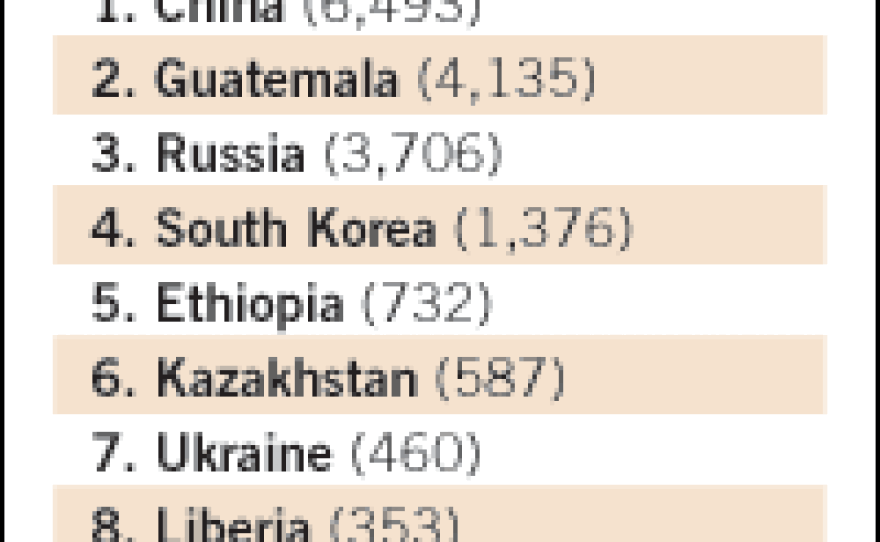
In 1956, Susan Cox became one of the first children from overseas to be adopted in the United States. When Cox was adopted from South Korea after the Korean War, she was quickly Americanized by the Oregon couple who became her parents.
Today, adoption agencies and prospective parents take much more into consideration an adopted child's cultural roots, Cox tells Steve Inskeep.
"What they would be much more aware of today than they were 50 years ago is that this child is [for example] Korean American. They need to make sure that this child is exposed to her culture and identity. We spend a lot more time preparing families than we did before."
Cox, a vice president of Holt International, a leading international adoption agency, was four and half years old when she was adopted.
"I always knew that my mother was Korean and that my father was not, that he was a soldier. I always assumed that he was an American soldier. And frankly, I would get tired of people saying, 'So who are your real mom and dad?' And so I would say to people, 'Douglas Macarthur.'"
With that joke, Cox deflected attention from her story — a story that she herself barely knew as her adoptive parents raised her in Oregon.
It took her decades to pull together the evidence, and the memories. It turns out that her biological father had been a British soldier — not an American, as she had thought — and she had been placed in an orphanage.
"When I came here, I spoke only Korean. It was in 1956, so it was a very different time in terms of the way adoptions were done.
"My parents were told that their priority was to Americanize me as quickly as possible because the concern at that time was, would these children fit in? So there was no Korean translator to be able to say to my parents, 'Well, this is what your daughter's saying.'
"And you become acclimated quite quickly. But as I became Americanized, I really forgot not only my language but also what had happened in my life in Korea."
Cox was among the very first children from another country to be placed for adoption in the United States. Since then, more than 200,000 children have been adopted internationally by Americans, Cox notes.
"It's much more ordinary than it used to be," she says. "When I grew up, it was very unusual. There are now three generations of children who have been placed for adoption."
Cox says her life would have been "very different" had she stayed in South Korea.
She would have grown up "as the illegitimate, mixed-race Korean War orphan," she says. "My Korean half-brothers think that I am wonderful. Had I stayed there, they would not have had those feelings about me. That's just reality."
Cox's Korean name, Soon-keum, was on her passport when she arrived in the United States. But her adoptive parents dropped the name in favor of Susan — part of the process of making her American, she says.
Later as an adult, Cox resumed using her Korean name — one that was given her by the birth mother she never met. "When she died ... her last words to my youngest brother [were], 'You have a sister and she went to America,'" Cox says.
"To know that, as she was dying, I was my mother's last thought is just a gift beyond measure."
Copyright 2022 NPR. To see more, visit https://www.npr.org. 9(MDAzMjM2NDYzMDEyMzc1Njk5NjAxNzY3OQ001))





